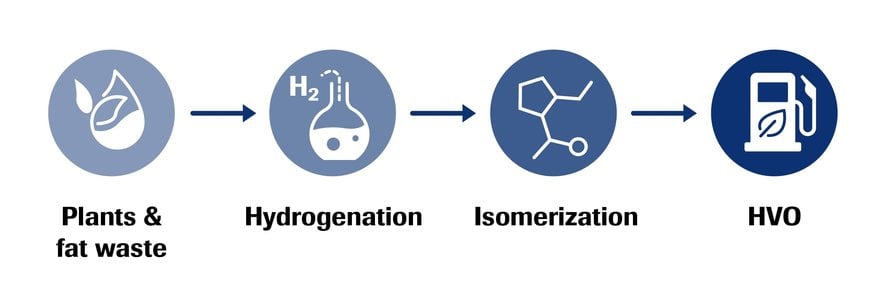railway-international.com
08
'24
Written on Modified on
Plassser & Theurer Offers HVO100 Biofuel for Reducing CO2 Emissions in Track Construction
This ecofriendly initiative underlines the company’s commitment to sustainable technologies and significant emission reductions in the railway construction industry.

HVO100 is a synthetic fuel produced through the hydrogenation of vegetable oils. With similar properties to conventional diesel, HVO100 offers a decisive advantage: its production is virtually climate neutral and based on renewable raw materials. Using plant and animal residues ensures that there is no competition with food production. Compared to diesel, this saves 70% to 90% of global CO2 emissions. Additionally, it considerably reduces local emissions, such as fine dust, hydrocarbons, carbon monoxide, and nitrogen oxides.
All new machines are now HVO-compatible
All new Plasser & Theurer machines are now approved for operation with HVO100 in accordance with EN 15940, regardless of the machine category. This transition allows us to achieve significantly reduced emissions without additional training or changes in machine operation.
Biofuel – bridging technology and all-season solution
HVO100 biofuel serves as a bridging technology, especially in scenarios where emission-free E³ machines are not yet a viable option. Another advantage of HVO100 is that it can be used all year round without changeover, unlike winter and summer diesel. In addition, there is no risk of diesel bug infestation during long-term storage.
HVO100 compatibility proven in field test
The results of the field tests carried out in cooperation with DB Netze speak for themselves. The use of HVO100 on a GAF 746.0 track motor vehicle had no negative impact on the machine components or the overall system. Fuel consumption, engine behaviour, and machine operation were equivalent to the diesel-fuelled counterpart to a large extent. Existing machines can be tested for HVO compatibility.
Compliant with EU directives and ecofriendly
Compliance with EU directives, including the Clean Vehicle Directive and the Renewable Energy Directive (RED II/III), as well as the ban on palm oil from RED II/III onwards, confirm the ecofriendliness of HVO100 in accordance with EN 15940.
www.plassertheurer.com

